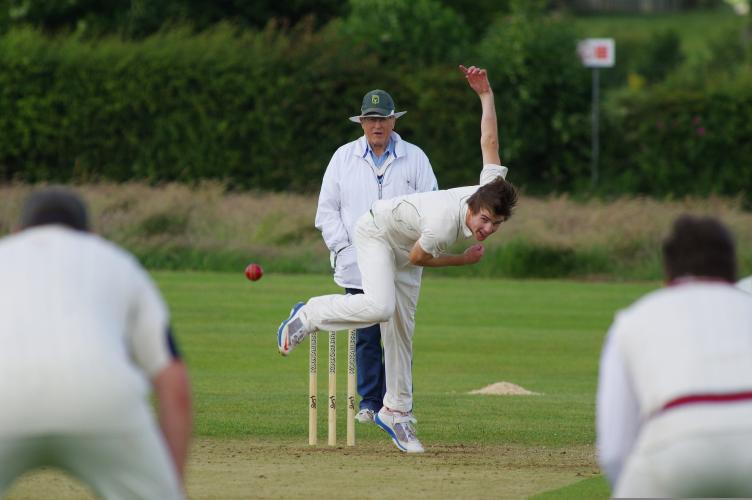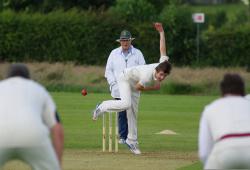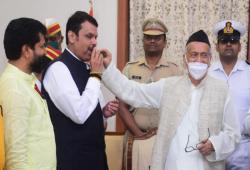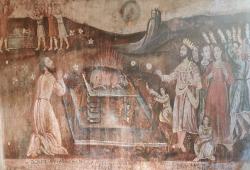
A recently released book about alleged corruption in the Mumbai Cricket Association or MCA is titled ‘Bouncer’. The title is appropriate in terms of cricket terminology but it might as well have been called bombshell considering the storm it has created in the governing circles of cricket. This is not unexpected as the MCA is the richest State board in India and the epicentre of Indian cricket. The MCA is a permanent member of the Board of Control for Cricket in India and houses the headquarters of the BCCI in the Cricket Centre within the famous Wankhede Stadium in South Mumbai where international test matches have been played since 1975. The BCCI, as everyone knows, is the richest governing body of cricket in the world and a part of the “big three” of international cricket along with ‘Cricket Australia’ and the ‘England and Wales Cricket Board’.
The MCA owes its rich cricket heritage to the quadrangular and pentangular tournaments played in Bombay with star cricketers of the country participating in them
Ravi Mandrekar, the author of the book (Full name: ‘Bouncer – The Story of David and Goliath in MCA’), is a former office bearer of the MCA, is an insider in the game and is President of the Hindu Gymkhana Club. The Club which is one of the founder members of the Bombay Cricket Association, the body now known as the MCA.
The MCA was established in 1930 and is the governing body for cricket in the city and the extended suburbs. The MCA is run by a managing committee which is elected every two years by the general body consisting of 350 member-clubs. The MCA owes its rich cricket heritage to the quadrangular and pentangular tournaments played in Bombay with star cricketers of the country participating in them. Bombay was considered the nursery of Indian Cricket and has given the country nearly 70 test cricketers. The MCA has dominated the Ranji Trophy, the most noted domestic first-class cricket championship conducted by the BCCI since 1934-35, winning 41 out of 87 times the tournament has been played. The MCA also has a record 15 victories in a row (from 1958–59 to 1972–73), reflecting the golden period of cricket in Mumbai. Now, Mumbai’s Ranji trophy team struggles at the initial stages and has lost to teams from Chhatisgarh and Puduchery. There appears to have been an all-round fall.
He has pointed out the corruption involved in the distribution of such passes and tickets in some cases. He has also alleged discrepancies, among others, about the number of tickets printed and the number shown to auditors in some other cases.
The book is full of citations, graphs, charts and many specifics. For example, he gives a two-page chart about the distribution of complimentary passes for the India-West Indies match of 2019 in Mumbai. Mandrekar gives a break-up of different stands in the stadium, including the Gavaskar Stand, the Vijay Merchant Stand, the Grand Stand and MCA Stand. And the passes given to numerous categories of people ranging from government officers, police, politicians, income tax, MMRDA, the city planning authority, prohibition and excise, customs, politicians and players. He has also pointed out the corruption involved in the distribution of such passes and tickets in some cases. He has also alleged discrepancies, among others, about the number of tickets printed and the number shown to auditors in some other cases.
The book was released in Mumbai recently by Jai Narayan Patel, a former Chief Justice of the Calcutta High Court, at the Bombay Gymkhana and is printed by Granthali, a noted publishing house devoted to public causes.
Corrupt elements have infiltrated the game; there is a fiefdom for politicians and their families
Mandrekar is a cricketer himself with a rich socio-political family background. His father was a lawyer brought up in the socialist tradition of the Rashtra Seva Dal and his mother hailed from the family of Ramkrishna Bhandarkar, a major social reformer, scholar and rationalist. He says he has often seen elite members standing with a glass of beer in hand talking against corruption but not standing up to bullies and not insisting on accountability from authorities.
The book points us of the problems of corruption in sport, with cricket now a money spinner and tournaments like the IPL bringing in huge sums for the BCCI. The message appears to be simple and has been talked about often: cricket has become a business, sans any professionalism. Corrupt elements have infiltrated the game; there is a fiefdom for politicians and their families.
Mandrekar says he has often seen elite members standing with a glass of beer in hand talking against corruption but not standing up to bullies and not insisting on accountability from authorities
This is not how it used to be. Mumbai cricket was formerly run by middle-class, genuine cricket lovers, those dedicated to the sport. M.V.Chandgadkar, an able administrator of the game, was a professor of English at Mumbai’s noted R A Podar College of Commerce and Economics, and wrote a history of the first fifty years of MCA. He was a secretary of the BCCI.
When Pepsi was entering the market in India in 1990, it organised international cricket matches at Wankhede stadium for two days and the management agreed to rent out the stadium for Rs.50,000. It was only after protests from members like Mandrekar that the amount was raised several times.
Books like these need to be written about every cricket association in the country and about associations of other sports. We have a lot of glamour writing in sports, and especially on cricket. It is time to take a hard look at what is not sport. Sports writing can and should be a serious work. Dave Zirin, the author of a People’s History of Sports in the U.S. and one of the best sports writers, is also an eminent scholar and now has a project to write a biography of Howard Zinn, the renowned American historian. Sports, after all, is about people and character and excellence, and it needs some careful study and scrutiny.
(The writer is a senior journalist)







